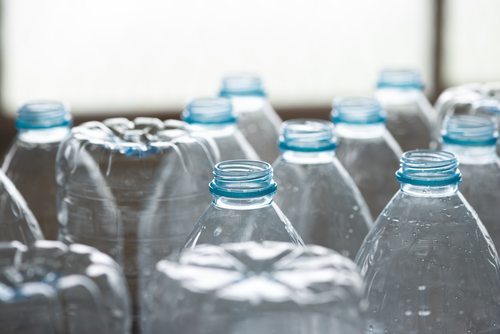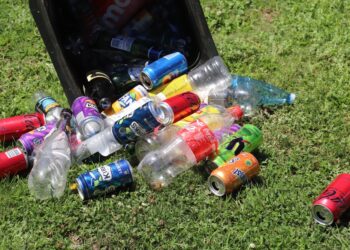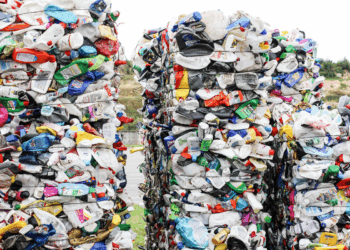In a bid to reduce contamination in the recycling stream, California lawmakers have revised the state’s definition of polyethylene terephthalate (PET) to exclude the glycol-modified version of the resin PETG. The change means products made from the altered plastic are barred from using resin code No. 1.
Assembly Bill 906 moved through both houses of California’s legislature last month and was signed by Gov. Jerry Brown on Oct. 15. The bill takes effect Oct. 1, 2018, giving manufacturers about a year to comply with its requirements.
Used to make bottles, thermoforms and other products, PETG causes problems when it’s sorted in with PET because it has a lower melting point than the traditional resin. When they’re processed together, PETG melts and becomes sticky while PET remains solid. PETG sticks to PET chips and forms large clumps that pose processing problems, according to legislative analysis of the bill.
Until now, PETG containers have received the No. 1 resin code label identifying them as PET, leading consumers to recycle the containers along with standard PET products. But with the new law, PETG containers no longer qualify for the label in California and will likely receive the No. 7 “other” plastics code.
The bill could have impacts beyond California’s borders, because PETG manufacturers sell their products into numerous states and may have to choose between making separate products labeled according to California’s resin codes or streamlining all products to meet California’s regulations.
Visit Plastics Recycling Update, sister publication to Resource Recycling, for more details on the change and to sign up for the free weekly e-newsletter.

























